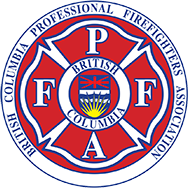The Ministers were joined by officials from NRCan, as well as members of the First Nations Emergency Services Society. Current projections indicate that this could be a challenging summer for wildfires in parts of the country. Forecasts for warm, dry weather indicate the potential for increased fire activity across much of Canada. NRCan publicly shares forecasting for the fire season with full transparency regarding the uncertainty inherent in these projections.
Since 2019, we have made significant investments into the mitigation and prevention of wildfire events and the recovery from them. These include $61 million through the Emergency Management Assistance Program, which goes directly to communities in British Columbia, and $7 million in specific FireSmart Funding to support wildfire risk reduction.
Canada is currently developing its first National Adaptation Strategy, working with provincial, territorial and municipal governments, Indigenous peoples and other key partners, to make communities safer and more resilient. Public consultation on the National Adaptation Strategy will launch soon, with a targeted release of the strategy by fall 2022.
The Government of Canada is committed to keeping all Canadians safe as all orders of government work together to prepare for the 2022 wildfire season.
Quotes
"We have seen the devastating effects wildfires and natural disasters can have on Canadians and their communities, and the Government of Canada is here to support those Canadians and those communities. We recognize the importance of protecting our communities in the face of ever-changing threats, many of them increased by climate change. Preventive measures will help increase our resilience."
The Honourable Jonathan Wilkinson
Minister of Natural Resources
"Last year, extreme weather devastated British Columbia, taking lives, destroying communities and the livelihoods of so many. With the changing climate, all orders of government and emergency management partners need to take strong action to prepare for future emergencies, including wildfires. We must adapt to this changing reality and build up our collective preparedness and response capacity. The Government of Canada is unwavering in our commitment to support Canadians as we build resiliency to the threats that exist right across the country."
The Honourable Bill Blair
President of the Queen's Privy Council and Minister of Emergency Preparedness
"Climate change is here, it's real, and we need to push together more than ever to protect our communities, our forests and wildlife and our food supply from longer and hotter summer months. We must recognize First Nation leaders and organizations for the care and dedication focused on their communities as we continue to advance emergency response measures in the short term and the long term. Investments from Budget 2022 are an important step to placing Indigenous knowledge at the forefront of emergency management while we continue to our work on the path to reconciliation."
The Honourable Patty Hajdu
Minister of Indigenous Services and Minister responsible for the Federal Economic Development Agency for Northern Ontario
"In the face of climate disasters, no community can be left behind. While we work to reduce pollution and slow down the rate of climate change, we must adapt and prepare for its impacts. This is why our government is developing the first ever National Adaptation Strategy — to make sure we have the tools needed to build a more climate-ready Canada."
The Honourable Steven Guilbeault
Minister of Environment and Climate Change Canada
"In many ways, British Columbia is on the front lines of climate change in Canada. It's clear that we all need to do more to keep our communities safe and prepared for future wildfire seasons. We have made significant new investments to better protect people and communities against future climate disasters. We're grateful for the Government of Canada's support as we continue improving our mitigative infrastructure, collective preparedness and response."
The Honourable Mike Farnworth
Minister of Public Safety and Solicitor General, British Columbia
"In British Columbia, wildfires are becoming more severe as a result of climate change. I had the chance to visit some of the BCWS fire camps in 2021 and saw first-hand how devastating wildfires can be for people and their communities. We are transforming the BC Wildfire Service into a proactive, year-around service, and we are working to help people on the ground better prepare for, and recover from, future wildfires. This investment by the Government of Canada will help with wildfire mitigation, response, monitoring and, most importantly, keeping people safe."
The Honourable Katrine Conroy
Minister of Forests, British Columbia
Quick facts
In the last five years, the Disaster Financial Assistance Arrangement has contributed over $580 million to provinces and territories, and has committed an additional $693 million, to assist with the response and recovery costs associated with wildfires.
The following amounts have been paid out so far:
Paid to date:
Saskatchewan: $6,892,598
Alberta: $323,164,211
2016 Wildfires (Fort McMurray), $307,000,000
2019 Wildfires, $16,164,211
British Columbia: $257,860,792
2017 July Wildfires, $191,910,549
2018 Wildfire, $65,950,243
Grand Total: $587,917,601
Budget 2022 laid out $24.7 million over five years, including $5.4 million dedicated to establishing a Privy Council secretariat to support the Minister of Emergency Preparedness and to enhance federal response coordination.
Indigenous Services Canada's Emergency Management Assistance Program (EMAP) reimburses First Nations, provinces and territories and third-party emergency management providers 100 percent of eligible response and recovery costs, including evacuation costs.
A request for federal assistance (RFA) is how a province or territory formally requests support from the federal government in their emergency response efforts. The following wildfire-related RFAs were received in 2021:
Ontario submitted two RFAs for wildfire support in Northwestern Ontario:
July 11 to September 12, 2021: the Canadian Armed Forces (CAF) provided airlift evacuation support for the residents of Poplar Hill First Nation and Deer Lake First Nation.
July 19 to August 27, 2021: CAF Rangers were deployed to support host communities with wildfire accommodations and social services to the Nishnawbe Aski Nation and local municipalities.
Manitoba submitted two RFAs for wildfires:
July 14 to August 10, 2021: CAF firefighters provided support in the eastern, western and northern regions.
This request was formally extended from August 10 to August 24, 2021.
British Columbia submitted nine RFAs:
July 14 to August 30, 2021: the CAF provided air lift evacuation support to Anaheim Lake; July 31 to August 30, 2021, and August 16 to August 30, 2021: this support was formally extended (3 RFAs).
July 5, 2021 to July 19, 2021: the CAF provided air assistance to the Village of Lytton and rapidly spread to the wildland north of Lytton; this assistance was formally extended from July 18 to August 30, 2021, July 31 to August 30, 2021 and August 16 to August 30, 2021 (4 RFAs).
July 31 to August 30, 2021: the CAF provided wildfire operations support to BC wildfire hotspots over 240,000 hectares of BC landscape; from August 30 to September 5, 2021, this support was formally extended (2 RFAs).
Federally, an additional RFA was received for facility assistance. From 15 August to 26 August 2021, the CAF provided the RCMP with accommodations at the Vernon Cadet Camp for RCMP members engaged in law enforcement in areas impacted by wildfires.
FPT partners are working together under the auspices of the Canadian Council of Forest Ministers to implement the Canadian Wildland Fire Strategy to enable national wildfire resilience.
Current information on national fire conditions is available publicly at all times through NRCan's Canadian Wildland Fire Information System. Additionally, during the fire season, the Canadian Forest Service supports emergency and fire management agencies through the development of situation reports (fire weather forecasts, situational awareness) and the delivery of fire growth and behaviour models.
The Government of Canada, through Environment and Climate Change Canada, is committed to providing support to all our partners by supplying weather information, including detailed precipitation and wind forecasts, smoke dispersion predictions and air quality forecasts. Access the latest weather information with weather.gc.ca.
Associated links
SOURCE Natural Resources Canada









